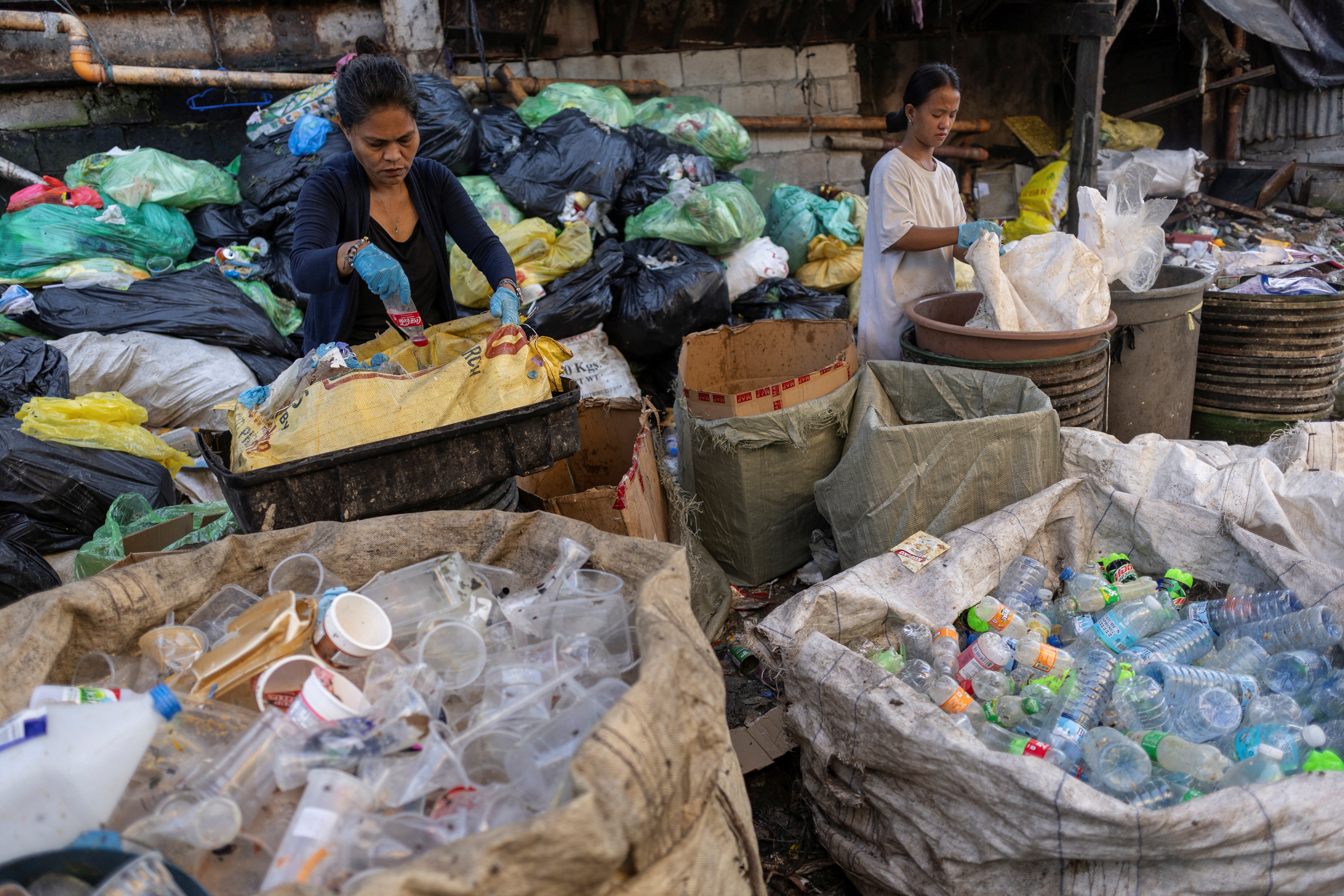Here's how private investors can turn plastic into gold

There are good returns to be made from plastics recycling in emerging markets Image: Jasmin Sessler on Unsplash
- A lack of capital is a significant barrier to creating a profitable plastics recycling market in emerging economies.
- But attractive returns are there for the taking – while tackling plastic pollution at the same time.
- Here's how financial institutions can accelerate the creation of this marketplace.
One of the greatest impediments to our ability to transition to a circular economy for plastics in emerging markets is a dearth of private investment capital. While investment in the recycling and circular economy space is occurring, particularly in the South and Southeast Asia regions, the flows of capital are neither large enough nor sufficiently consistent to scale solutions.
Meanwhile the plastic pollution crisis persists. Despite progress on several fronts, only 9% of all plastic waste ever generated has been recycled, and the flow of plastics into rivers, oceans and other natural ecosystems is expected to triple by 2040 without drastic action.
To-date, much of the capital behind solutions is strategic (it's put up by plastics supply chain actors, for example), concessionary in nature (from international development institutions), or from highly focused impact investors and philanthropic funders. Conspicuously absent are mainstream financial institutions— broadly comprising financial intermediaries, asset managers and trading venues— seeking a commercial rate of return. This is despite solid evidence that emerging markets offer a significant opportunity for achieving (a) the largest impact on plastic waste mismanagement and (b) an attractive risk-adjusted return.
Financial institutions can participate in accelerating the development of a recycling and circular economy marketplace and, in turn, unlock opportunities for new investment. There are already a number of actors proving the investability of circular plastics models in emerging markets, who are referenced where possible in the hopes of spurring more financial institutions into action.
These observations are based on a recent white paper Circulate Capital developed in collaboration with the World Economic Forum’s Global Plastic Action Partnership.
Build a more 'investible' circular economy
Negative perceptions of recycling and the circular economy in emerging markets persist, particularly when it comes to the lack of a track record for investment and a landscape dominated by small deals. Financial institutions can take two key steps to help counter this view:
1. Creating track records for new investments. Financial institutions can consider prioritizing capital flows to recycling and circular economy markets and supply chain verticals where more track records already exist. For example, Circulate Capital Ocean Fund, representing $106 million in committed capital from the plastics supply chain – including leading companies such as PepsiCo, Coca-Cola, Danone, Dow, Procter & Gamble, Chanel, Unilever and CP Chem – for investment in South and Southeast Asia, is committed to disclosing its financial and impact returns.
Financial institutions can also promote disclosure of financial performance and impact on plastic waste at the company and project levels as part of a broader sustainability discussion. For instance, through the creation of investment indices, underwriting capital raisings, or extending loans that incorporate metrics related to plastics circularity.
2. Building stronger pipelines. Financial institutions can look to deploy capital via venture capital/private equity deals, funds or other vehicles that aggregate and channel capital to recycling and circular economy. For example, Morova’s Althelia Sustainable Ocean Fund, a $132 million vehicle focused on the circular economy and other ocean-related business models, has invested $2 million in India in an effort that seeks to transform informal sector actors into ‘waste-preneurs.’ The German development bank KFW, the European Investment Bank, together with French insurers BNP Paribas Cardif and Garance, are all investors in Althelia Sustainable Ocean Fund.
Financial institutions can also explore innovative investor partnerships across the financing spectrum that encourage and facilitate acceptance of greater risk. For example, the Asian Development Bank has recently launched a Clean and Sustainable Ocean Partnership with the European Investment Bank in the Indo-Pacific region; this provides technical assistance and advisory support to help entities get sustainable blue economy and clean oceans projects off the ground.
Do more to address volatility
During a transition from a linear to circular economy, downstream (waste management and recycling) investments must contend with dynamic commodities markets influenced by a) historically high price volatility and b) supply-demand disconnect. Financial institutions have a great deal of recourse in terms of mitigating these fluctuations:
1. Creating financial instruments (such as futures, options, insurance-like vehicles) to manage absolute and relative price risk in connection with recycled plastics and provide liquidity to resulting exchange-based contracts.
2. Underwriting or investing in issuances, or extending loans, where the use of proceeds concerns long-term supply or demand contracts, and annual reporting is required on their application. For example, PepsiCo’s U$1 billion, 30-year inaugural green bond in October 2019 included sustainable plastics and packaging purchases and investments as eligible projects within its use of proceeds.
3. Advising on, underwriting, or investing in new recycled plastics spot market trading venues (that is, similar to agricultural physical commodity markets) or platforms that encourage price discovery and product standardization (for example by polymer type, quality and quantity).
Drive capital toward more early-stage innovations
Two of the biggest obstacles to creating more innovation are a) early-stage technologies are concentrated in developed markets, lacking capital, and risky to transfer to emerging markets; and b) applying such innovations in emerging markets carries additional risks, including legal/regulatory, management expertise and workforce, and supply chain risks.
To address these issues, financial institutions can deploy capital at scale by investing in and/or underwriting via early-stage innovation funds, such as Sky Ocean Ventures Fund, with $25 million deployed to new technologies, materials, and business models, and companies, such as RWDC Industries (a Singapore-registered/US-located facility), a PHA-based biomaterials producer which raised $133 million in Series B funds in May 2020.
What is the World Economic Forum doing about plastic pollution?
The good news for financial institutions is that there is an enormous opportunity to invest in recycling and circular economy solutions in ways that meet their risk / return preferences while simultaneously unlocking capital flows to accelerate growth in the space. Further, as we start to understand the linkages between investing in the circular plastics value chain and climate change outcomes, recycling and circular economy investments must become part of the consideration set for climate-oriented investors. The case for institutional capital to step up has never been stronger, and we need financial institutions to begin allocating their capital to recycling and circular economy in the fight against plastic pollution if we want to stem the tide. Now is the time to invest.
Don't miss any update on this topic
Create a free account and access your personalized content collection with our latest publications and analyses.
License and Republishing
World Economic Forum articles may be republished in accordance with the Creative Commons Attribution-NonCommercial-NoDerivatives 4.0 International Public License, and in accordance with our Terms of Use.
The views expressed in this article are those of the author alone and not the World Economic Forum.
Stay up to date:
Plastic Pollution
Forum Stories newsletter
Bringing you weekly curated insights and analysis on the global issues that matter.
More on Circular EconomySee all
Felipe Basso
November 13, 2025







